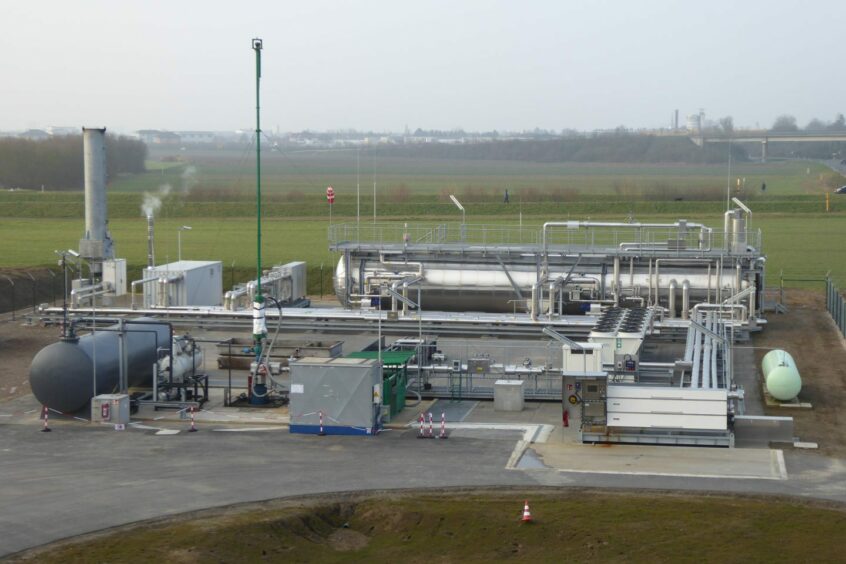
Executives behind Beacon Energy have the stated aim of creating a self-funding company and believe that a deal in Germany may just be the way forward.
On March 21, the company set out its admission document. This would see shareholders voting on the Germany deal on April 5, with the aim of returning to trading on April 11.
Beacon began its current incarnation as Advance Energy. Larry Bottomley, former CEO of Chariot, became CEO of Advance in early 2022.
“Over the last year, we’ve taken Advance Energy and used that to create a clean cash shell. Then we set out the goal of accessing assets to reverse into – the goal at Beacon is to create a self-funding, cash generating company that can reinvest into business, growing production and reserves,” Bottomley said.
Assets needed to have proven reserves, generate cash and with portfolio options for growth. The CEO went on to say the team was eager to find projects that would be valuable in low or high price scenarios, and in stable regimes.
“We screened a number of opportunities and Rhein Petroleum came to the top,” he said. It has onshore production assets that are producing cash – but have “material development opportunities to invest in”.
Cashing up
Beacon will acquire Rhein for 3.49 billion shares. It is also raising £6.04 million, of which it will receive £4.77mn net. The company will invest the cash into the assets.
“On the one hand, the story resonated with the investor community,” said Beacon CFO Stewart MacDonald. “It’s not a story for everyone, but there’s a lot of appeal.”
However, timing of the raise – as Silicon Valley Bank was foundering in the US and Credit Suisse hitting its own difficulties – was a challenge. “The hit rate with investors was high, but there were lower orders than we might otherwise have got,” MacDonald said.
The CFO described Germany as having been largely overlooked for oil and gas, but said there had been “material production” in the country for decades. “We see scope for consolidation and portfolio rationalisation.”
“There is genuine support for the domestic oil business, where there may not have been in the past. The fiscal regime is well established, with a royalty rate at 10% broadly and 30% tax.”
One strong driver has been the question of energy security. Bottomley noted the foregrounding of security in the UK and continental Europe.
“Indigenous supply gives the opportunity for the lowest carbon footprint. We are operating in one of the highest regulated environments in the world,” the CEO said. Rhein trucks the oil to a local refinery, which Bottomley described as the “best possible” way in which to lower carbon.
Private equity-backed Tulip Oil currently owns Rhein. Tulip previously owned assets in the Netherlands, which it sold to Kistos in 2021. The sale continues this pattern, with Tulip converting its Rhein interest into a 40.5% stake in Beacon.
“What they us to do is grow. The growth of Beacon grows them,” Bottomley said of Tulip.
Growth
Beacon plans to take its first steps for growth by funding the drilling, and perhaps testing, of the Schwarzbach-2 well. Should this be successful, it will install flow lines and hook up the well to its production facilities.
The CEO said this would happen as “soon as it can be done”. Beacon has said it hopes to bring the well into production this year.
It may drill the SCHB-3 well in 2024, funded by the first well, with a water injection well later that year.
Bottomley noted a discovery from 2019, named Steig, that Beacon was considering, in addition to Graben. In addition to development work at Steig, the company has said there is also deeper exploration potential.
Two licences are due to expire, in 2025 and 2026 respectively. Bottomley said there was a “very clear and systematic process” in how the company will extend the licences.
“Rhein Petroleum has managed that process for the last 10 years and the team will continue. The Erfelden field development is fully licensed and we have approval for the three well programme,” the CEO said.
Construction has begun in preparation for drilling. Meanwhile, Steig is “going through the approval process”, he said. “There is a systematic and methodical way for these processes.”
Recommended for you

